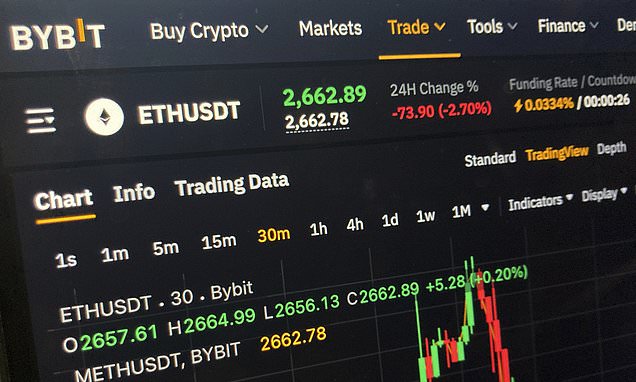Crypto Heist Shocker: Hackers Pilfer £1.19 Billion in Unprecedented Digital Theft

In a staggering cyber heist that has sent shockwaves through the cryptocurrency world, suspected North Korean hackers have orchestrated the largest digital currency theft in history, making off with an astronomical £1.2 billion in virtual assets.
The unprecedented cybercrime highlights the growing sophistication of state-sponsored hacking groups and the vulnerabilities within the digital financial ecosystem. Cybersecurity experts believe the attack bears all the hallmarks of North Korea's notorious Lazarus Group, a state-backed hacking collective known for its advanced technological capabilities and aggressive digital theft strategies.
This massive breach not only represents a significant financial loss but also underscores the increasing risks facing cryptocurrency platforms and investors in an increasingly complex digital landscape. The incident serves as a stark reminder of the critical need for enhanced security measures and robust protective strategies in the rapidly evolving world of digital currencies.
Investigators are currently working to trace the stolen funds and understand the intricate methods employed by these cybercriminals, while the cryptocurrency community remains on high alert for potential further attacks.
